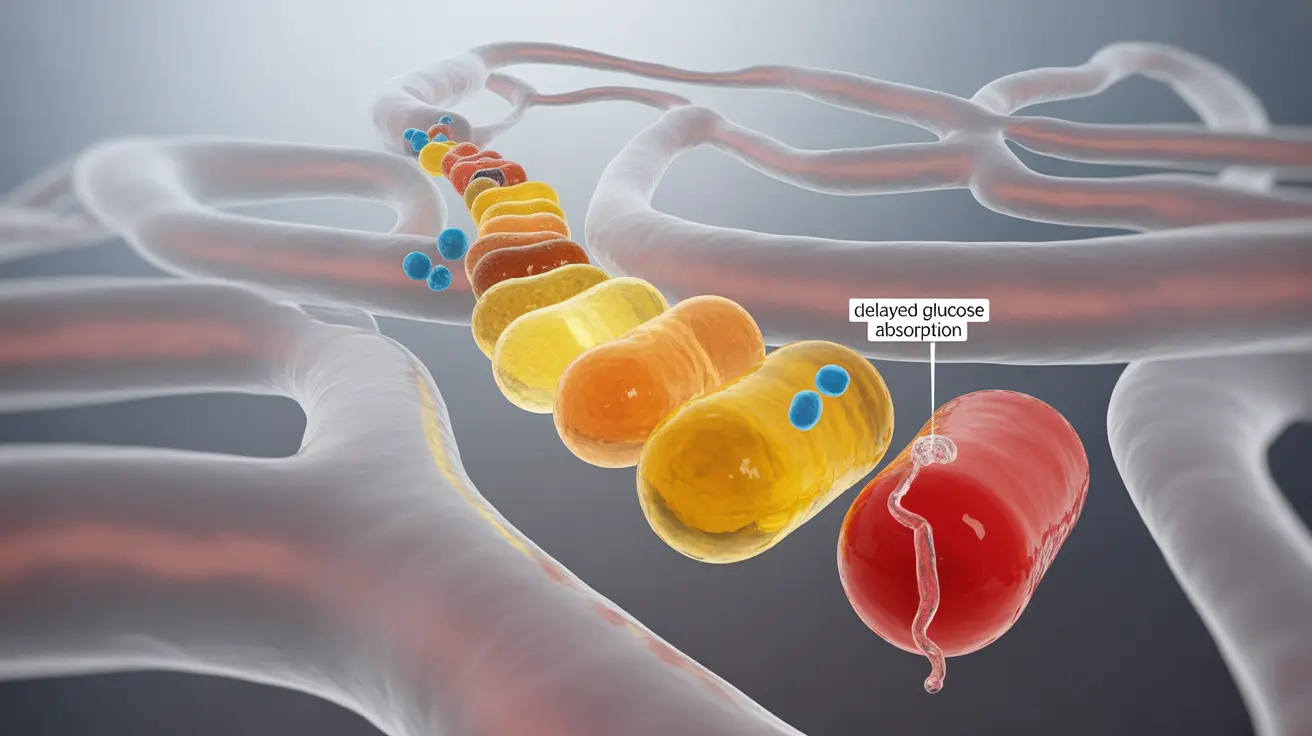The relationship between dietary fat and blood sugar levels is a crucial topic for people managing diabetes or those concerned about their blood sugar control. While carbohydrates are well-known for their immediate impact on blood glucose, many wonder about the role of dietary fat in blood sugar management.
Understanding how fat affects blood sugar is essential for making informed dietary choices and maintaining optimal glucose control. Let's explore the complex interplay between dietary fat and blood sugar levels, including both immediate and delayed effects.
The Immediate vs. Delayed Effects of Fat on Blood Sugar
Unlike carbohydrates, dietary fat doesn't directly raise blood sugar levels immediately after consumption. However, fat does play a significant role in glucose metabolism and can affect blood sugar levels in more subtle, delayed ways.
When consumed as part of a meal, fat slows down digestion and the absorption of other nutrients, including carbohydrates. This delayed digestion can lead to a more gradual rise in blood sugar levels, which may extend over several hours after eating.
How Fat Impacts Insulin Response
High-fat meals can significantly influence how the body responds to insulin, which is particularly important for people with diabetes. Fat can:
- Increase insulin resistance temporarily
- Delay the peak blood sugar response to carbohydrates
- Require adjustments in insulin timing and dosing for those who use insulin
Types of Dietary Fat and Their Effects on Blood Sugar
Not all fats affect blood sugar and overall health in the same way. Understanding the different types of dietary fat is crucial for blood sugar management:
Healthy Fats for Blood Sugar Control
These fats generally support better blood sugar management:
- Monounsaturated fats (olive oil, avocados)
- Omega-3 fatty acids (fatty fish, chia seeds)
- Moderate amounts of saturated fats from whole food sources
Fats to Limit or Avoid
These fats may negatively impact blood sugar control:
- Trans fats
- Processed vegetable oils high in omega-6 fatty acids
- Excessive amounts of saturated fats
Recommended Daily Fat Intake for Blood Sugar Management
For optimal blood sugar control, experts typically recommend that 20-35% of daily calories come from fat. However, individual needs may vary based on factors such as:
- Overall health status
- Activity level
- Specific dietary goals
- Type of diabetes management plan
Frequently Asked Questions
Does eating fat raise blood sugar levels immediately or later after a meal? Fat doesn't immediately raise blood sugar levels, but it can cause a delayed rise in blood glucose several hours after eating by slowing digestion and affecting insulin sensitivity.
How does fat in meals affect blood sugar control for people with diabetes? Fat affects blood sugar control by slowing down digestion, delaying glucose absorption, and potentially increasing insulin resistance. This can lead to more unpredictable blood sugar patterns that may require careful monitoring.
Can high-fat meals change the amount of insulin needed for diabetes management? Yes, high-fat meals may require adjustments in insulin timing and dosing. Some people might need to modify their insulin delivery pattern or consider extended bolus options when consuming high-fat meals.
What types of fats are best to eat if I have diabetes to maintain healthy blood sugar? Healthy fats like monounsaturated fats from olive oil, avocados, and nuts, as well as omega-3 fatty acids from fish, are generally best for blood sugar management. These fats can help improve insulin sensitivity when consumed in moderation.
How much fat should people with diabetes include in their daily diet to avoid blood sugar problems? Most diabetes management plans recommend getting 20-35% of daily calories from fat, focusing primarily on healthy fat sources. Individual needs may vary, and it's important to work with a healthcare provider to determine the right amount for your specific situation.




